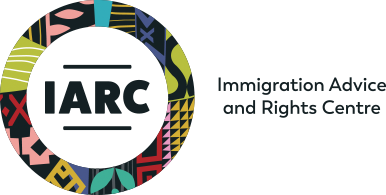JOINT MEDIA RELEASE – THE AUSTRALIA INSTITUTE AND IMMIGRATION ADVICE AND RIGHTS CENTRE
Over 30,000 people from Pacific Island nations and Timor Leste work in Australia on temporary visas as part of the Pacific Australia Labour Mobility (PALM) visa scheme, which a new report calls “a breeding ground for contemporary forms of slavery”.
The report was written by the Immigration Advice and Rights Centre (IARC), a community legal centre that provides free and confidential legal advice and assistance to people throughout New South Wales on all immigration, refugee, and citizenship matters.
It finds that restrictive visa settings are at the root of the many cases of exploitation. This includes the fact that PALM workers are not allowed to leave their employer without approval from the Department of Employment and Workplace Relations (DEWR). These employers are allowed to make deductions from the wages of PALM workers, which means they are sometimes left with just $100-$200 per week.
Over two years, IARC participated in a series of forums for migrant workers engaged in supplying Australia’s two major supermarkets with fruit and vegetables. IARC also regularly advises PALM workers referred to the service as a result of experiencing workplace exploitation.
Key findings
- PALM workers are regularly threatened with deportation by their employer, which underscores the lack of information they receive about their visa status and workplace rights.
- PALM workers in Bundaberg, QLD, were unable to meet basic living standards, leading them to sleep rough and line up at soup kitchens.
- In the Riverina region of NSW, most PALM workers that had ‘disengaged’ from the scheme had left their employer as a result of exploitation.
The report, entitled ‘Preventing Migrant Worker Exploitation in Australia’, was prepared for the United Nations Special Rapporteur on Contemporary Forms of Slavery, Professor Tomoya Obokata, who is in Australia on a two week visit that will end with a press conference in Canberra on November 27.
Key recommendations
- All visa holders (including PALM visa holders) should be free to change employers without jeopardising their visa pathway.
- Migrant workers wishing to stay in Australia long-term should be able to apply for permanent residency without needing to be sponsored by an employer.
- Specialist immigration community legal centres should receive greater funding to advise exploited migrant workers on their immigration options and workplace rights.
The report and its recommendations build on research by The Australia Institute, which found:
- The number of PALM workers who are injured or die whilst in Australia is increasing. Between 2020 and 2023, there were 233 critical injuries and 45 deaths.
- PALM visa holders often pay more in tax than Australians doing the same work.
- Many PALM visa holders find it almost impossible to access their superannuation once they leave Australia.
On a recent visit to Australia as a guest of The Australia Institute, Timor-Leste President Jose Ramos-Horta said the PALM visa system was exploitative and needed urgent reform.
“PALM workers come to Australia to work, and to provide a better life for their families back home, but too often Australia fails them,” said Joshua Strutt, CEO and Principal Solicitor of IARC.
“Many PALM workers endure shocking exploitation at the hands of Australian employers, including severe workplace injuries, horrendous living conditions, and significant underpayments.
“We have seen PALM workers who have gone blind and lost limbs in Australian workplaces due to not being provided with proper safety equipment or medical care. The PALM visa scheme is complicit in this exploitation as it forces people into working for these employers and makes it almost impossible to leave.”
Joshua Strutt is available for interview. IARC can provide the contact details of PALM workers exploited under the scheme.
“The PALM program subjects people from Pacific Island nations and East Timor to conditions that would be illegal for other workers,” said Morgan Harrington, Research Manager at The Australia Institute.
“If our government is genuine about forging partnerships with our neighbours then the program needs to provide genuine opportunities.”
Morgan Harrington is available for interview.
Media enquiries:
Glenn Connley 0457 974 636 (The Australia Institute)
Sarah Sinclair 0419 170 535 (IARC)
Read the full report here.
Read more information from The Australia Institute here.
